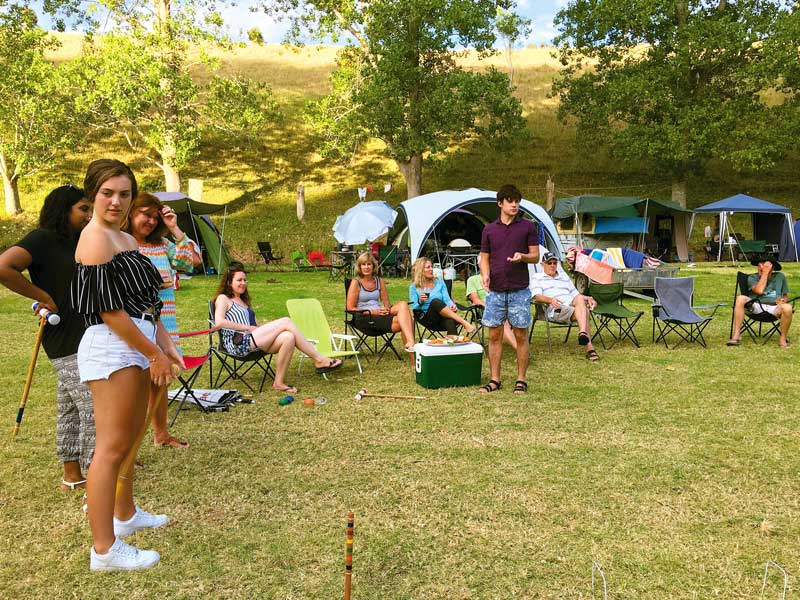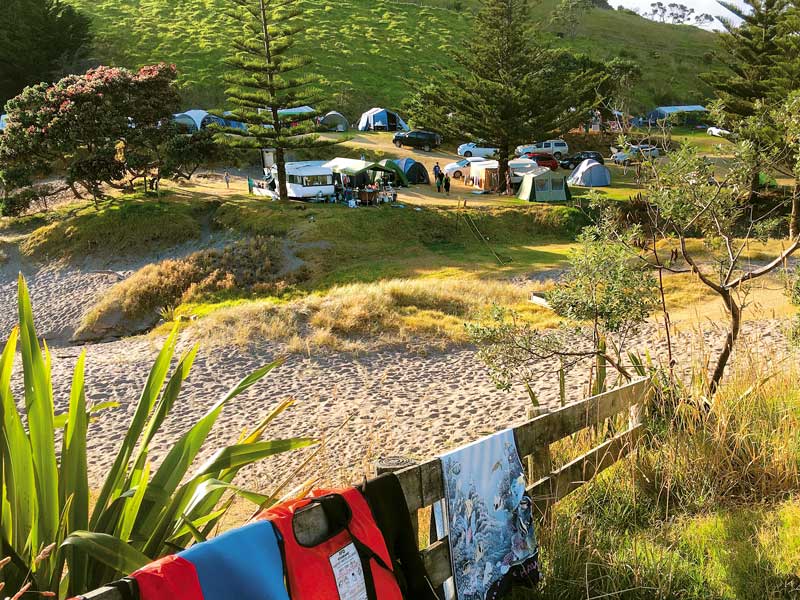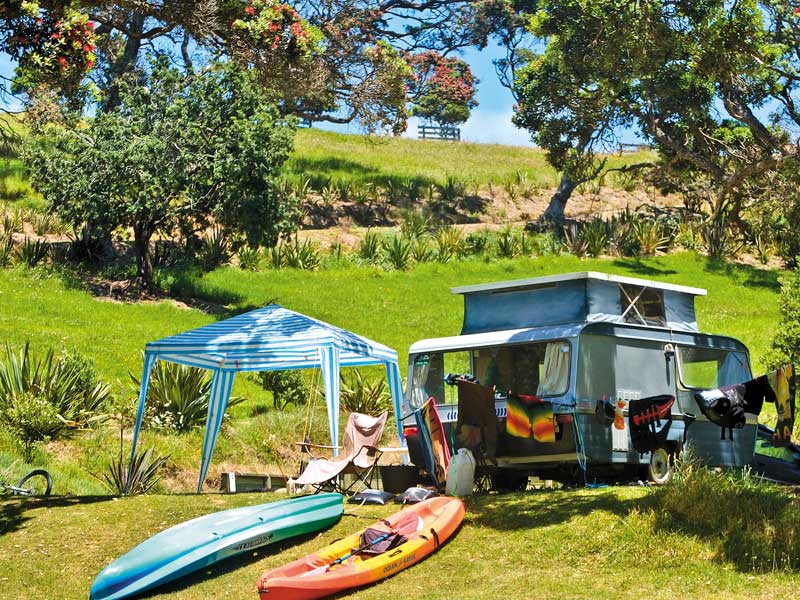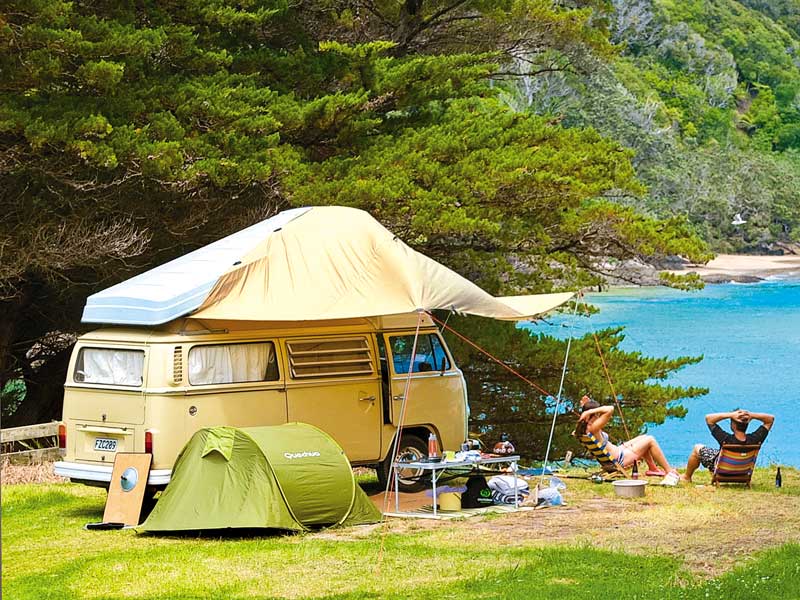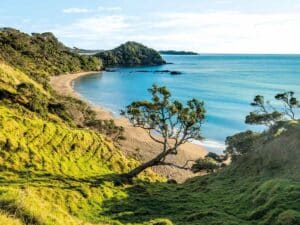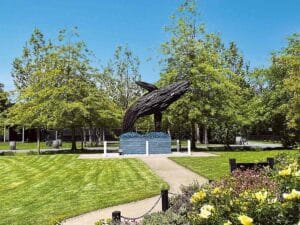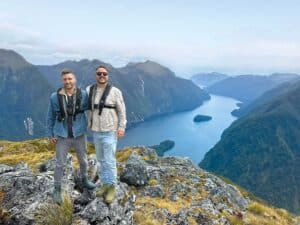Each summer, we make a pilgrimage to one of our favourite escapes at Whananaki in the Far North. We take up residence in one of New Zealand’s quintessential camping grounds, where old pohutukawa trees hang out their gnarly limbs to shade the beach, and the fringes of the sun winking sea curls benignly onto the salt and pepper sand.
Of course, it can all change in a moment if the weather does, but the image I carry with me for the rest of the year is of a seamless blue sky and the warmth of the sun draped over my shoulders like a friendly arm. I return home a different person. I’m not sure I ever come all the way back.
However, it is not just the locality that makes the memory linger. Apart from long-drop toilets, bore water, and small wooden sheds, where we can sluice under our solar showers, there are no amenities. It is one of those sites that is becoming rare in New Zealand, where camping is as it used to be—away from it all. For a start, there’s only weak and intermittent cell phone coverage. We usually have to climb a breath-depleting hill to find it. So there’s no TV, no e-mail, no Facebook, and no news. It’s a two-kilometre walk to the dairy and there are no other shops. We eat simply, dress simply, sleep when we are tired, exercise more, and if we socialise, we take our own food, drinks, and chairs. One day flips over into another without any fuss.
This year, I took notice of how this release from the demands of the modern world affected us. I first noticed the frequency of laughter. The sound of people enjoying themselves constantly erupts from tents, caravans, and motorhomes and echoes across beaches and hillsides. During the weeks we were there, I heard no altercations or voices raised in anger, apart from the odd toddler venting its two-year-old rage.
We make our own fun, or we have none. In the evenings, adults gather outside a tent or an RV for an aperitif or two before lighting up the barbie. The smaller kids frolic around like jumping fleas, playing tag or bull-rush, and teenagers hang about in gangs or play cricket and croquet on the drying grass until it’s too late to see the ball.
Apart from the activities—swimming, kayaking, walking, and talking—I read a book each day. I sit and watch the grass grow, and at night, I keep an eye on the stars and thank my lucky ones.
When people buy a motorhome or caravan (which they do in increasing numbers), it’s this life on easy street they’re mostly likely after.
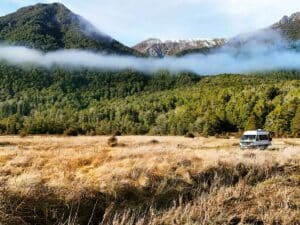
The road to Milford Sound
Explore the awe-inspiring journey to Milford Sound through Fiordland National Park – from scenic DOC campsites and iconic hikes to wildlife cruises and luxury stays

